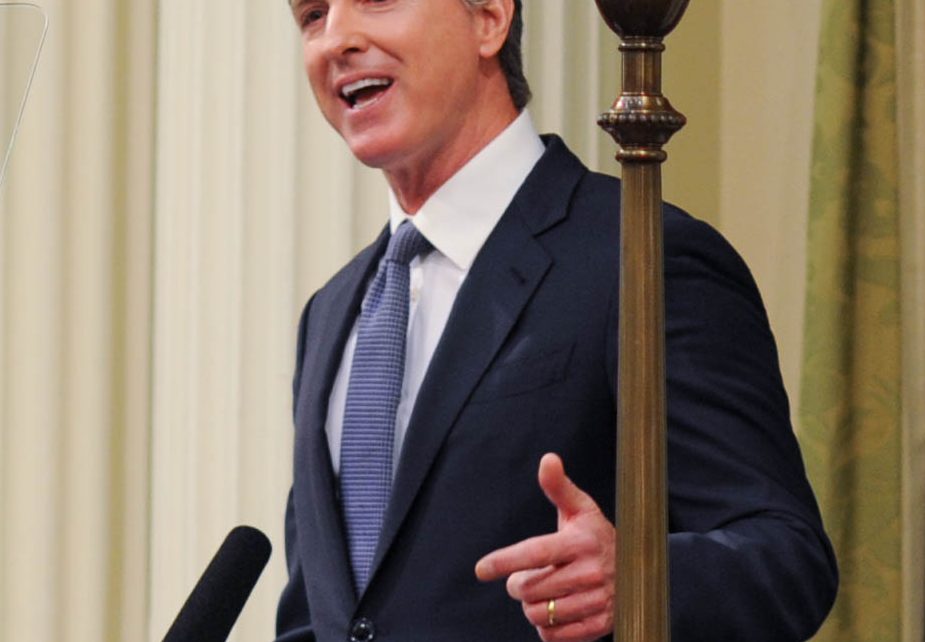
Gov. Gavin Newsom. (Photo: Kevin Sanders for California Globe)
California Gov. Gavin Newsom Devotes State of the State 2020 to Homeless and Housing Crises
‘Spend your mental health dollars by June 30th, or we’ll make sure they get spent for you’
By Katy Grimes, February 19, 2020 3:18 pm
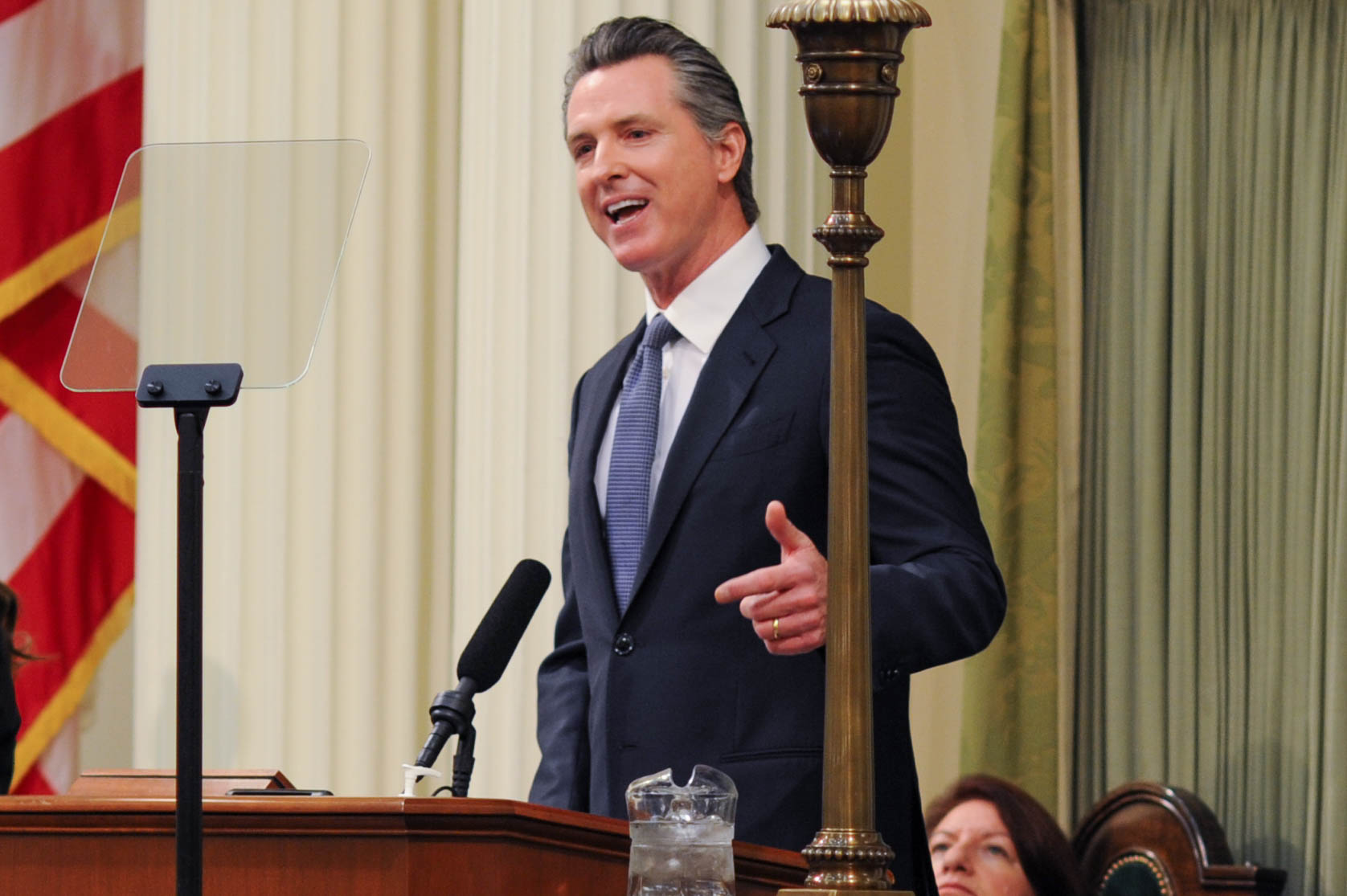
Many other critical issues in California were not addressed at all: Water, energy, high-speed rail, wildfires, the PG&E bankruptcy, agriculture, or the 619,000 former Californians who in 2018 fled to other states.
California’s Governor Gavin Newsom delivered his State of the State 2020 address Wednesday with a great deal of assuredness that California can overcome some of its biggest hurdles. His primary focus was solving the homeless crisis, and getting more affordable housing built throughout the state. He was upbeat and mostly positive, despite the gravity of these issues.
Ahead of the Governor’s speech, Assembly Speaker Anthony Rendon spoke of California 2020 as “a tale of two states.” The best of times and worst of times involve California’s strong economy, but “the slow progress for the have-notes and unprecedented inequality,” is the worst of times. “We have a lot of work to do,” Rendon said. “The housing crisis must address these underpinnings.”
“Thank you once again for the privilege of this podium,” Gov. Newsom said. He added that the state of California is not just thriving but leading the country.

Newsom quickly summed up some of his favorite and most impressive highlights: 118 months of job growth, 4 mil small businesses call California home, more than half of all venture capital flows through California.
He compared California’s GDP with the 2.5 national GDP, and called California a “unionizing nation state of opportunity.”
“One in seven new American jobs since 2010 have been created in California,” Newsom said. “We build record reserves including the largest rainy day fund in California history,” and “disappeared the infamous wall of debt.”
Newsom said all of this began under the leadership of President Barak Obama. “Simply put, California is the rocket fuel powering America’s resurgence, that, let me be clear, was put into motion by President Barack Obama.”
But he didn’t give Obama the credit for California’s homeless or housing crisis – also begun while Barack Obama was President.
Homeless Crisis
Newsom spoke of the need for the creation of a “permanent stream of revenue” focused on ending homelessness. While he did not say the words “tax increase,” many assumed that is what he was talking about. There was no talk of cutting some spending to pay for
“We’re going to need significant, sustainable revenue,” Newsom said. “I pledge to work closely with you to identify where this ongoing revenue will come from. But we’ve got to find it to provide the safer, cleaner streets that communities we represent deserve.”
Newsom said California homeless have been “failed by the country’s leaders. There’s nothing compassionate about allowing Californians to living on the street or in makeshift encampments.”
At this point, many of the lawmakers in the Assembly Chambers jumped up and clapped.
“This has been going on for decades,” Newsom said referencing the “housing shortage” and “income inequality.”
“Back in 2005, we did first point in time count of 188,000 homeless. That’s 35,000 more than today.”
“Since then, it’s almost become normalized.”
Many in the state believe the current homeless population is grossly under-counted and underreported.
Newsom quoted from a Green Day song: “After all, every homeless Californian, living on a boulevard of broken dreams, is a casualty of institutional failures—a person who’s fallen through every possible hole in the safety net.”
Newsom appeared to convey that this level of drug addicts, criminals and the mentally ill have been living on California streets for decades, which is not the case. He ignored the spike in property crimes which are used to feed drug addiction, brought about by Proposition 47 and Proposition 57. As California Globe has reported many times, “Assembly Bill 109, Proposition 47, Proposition 57 decriminalized theft, drug crimes, sex crimes, and emptied out California prisons. Proposition 47 also reclassified shoplifting, grand theft, receiving stolen property, forgery, fraud, and writing bad checks as ‘non-serious, nonviolent crimes,’ and any theft valued at $950 or less as a misdemeanor, even if committed every day.”
Proposition 57 allows criminals convicted of rape, lewd acts against a child, and human trafficking to be released early from prison. Prop. 57 allows career criminals to be treated as first offenders, and it overturned victims’ rights legislation like Marsy’s Law, ‘three strikes,’ Victim’s Bill of Rights, and the Californians Against Sexual Exploitation Act.”
Newsom said much of the homelessness is “rooted in poverty and racial discrimination. We must replace California’s scattershot approach with a coordinated crisis-level response. To meet this moment with the commitment it demands, we will advance a new framework. We will reduce street homelessness quickly and humanely through emergency actions.”
Gov. Newsom took the time to provide the lengthy but accurate history of the national movement to “de-institutionalize” the mentally ill:
California passed the Short-Doyle Act in 1957 to fund community mental health services.
The federal government, too, pursued this worthy goal.
President Kennedy envisioned a system in which, in his words, “the reliance on the cold mercy of custodial isolation will be supplanted by the open warmth of community concern.”
State mental hospitals were closed. But the promise of community mental health was never fully realized.
The states were burdened with the responsibility but provided little in the way of support.
Laws were changed that made it harder to compel mental health treatment. Governor Ronald Reagan signed the Lanterman-Petris-Short Act in 1967, designed to end the inappropriate lifetime commitment of people with mental illness.
And critically, in 1975, a U.S. Supreme Court decision, O’Connor v. Donaldson, ruled that “mental illness alone cannot justify a state locking a person up against his will.”
All of these changes, coincided with safety net cuts, block grants, and tightened eligibility standards of the 80’s and 90’s, along with wholesale razing of skid rows and SROs—which for so many was the only housing option.
The cumulative impact made county jails the de facto mental health institutions.
Patients and their families were left with inadequate options to get the mental health care they needed.
In a politically polarized world, liberals and conservatives blame one another for these failures.
Historically speaking, both are right.
It’s time to stop pointing fingers and join hands in a transformational solution.
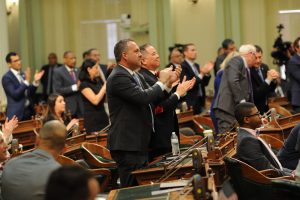
“This crisis was not created overnight, nor will be solved overnight,” Newsom added. “I don’t think homelessness can be solved. I know homelessness can be solved.”
Newsom threatened counties to spend on the homeless/mentally ill or lose the funding: “We should compel counties to spend more of what they’ve got by lowering the 33 percent reserve threshold they are allowed to hold back. Even with the current threshold, 40 of our 58 counties are above that line. That is over $160 million unspent that could help people get off the streets and into treatment. My message is this: spend your mental health dollars by June 30th, or we’ll make sure they get spent for you.”
Newsom’s State of the State address was unusual in that many other critical issues in California were not addressed at all: Water, energy, high-speed rail, wildfires, the PG&E bankruptcy, agriculture and the 619,000 former Californians who in 2018 fled to other states.
This is reflected in the responses by Senators and Assembly members following the address:
“Given the Governor’s focus on homelessness, I hope he will work with me to pass my SB 863 that will ban deceptive marketing in the rehab industry, and to address issues related to sober living homes,” Senator Patricia Bates (R-Laguna Niguel) said. “Bad actors in the addiction treatment industry have played a role in putting more people on the streets and I welcome any assistance the Governor can provide in this area.”
“I was a little surprised that Governor Newsom chose to focus almost solely on homelessness and critically needed housing but I wholeheartedly support what the Governor is trying to do,” Assemblyman Jim Frazier (D-Fairfield) said in response. “While Governor Newsom didn’t touch on other pressing issues such as the Delta Tunnels, the current state of High Speed Rail or the funding of services for people living with intellectual and developmental disabilities, I will continue to devote my efforts around these issues as well.”
“The Governor failed to mention a plan to enhance water infrastructure and storage, such as the Friant-Kern Canal,” said Senator Andreas Borgeas (R-Fresno). “Earlier today, I had a phone call with the White House regarding the President’s new executive orders. I appreciate the attention the President’s administration is giving to these issues and hope California will present itself as a partner as well. Additionally, the Governor’s budgetary support of AB 5 is baffling given that hundreds of thousands of jobs could be decimated, particularly in the Central Valley,” Sen. Borgeas said. “If we want to continue creating jobs, we must allow flexibility for freelancers and independent contractors to work independently. I will be holding a Town Hall meeting on AB 5 in Fresno on February 27th.”
“The Governor is right that building more housing is needed,” said Assembly Republican Leader Marie Waldron (R-Escondido). “Unfortunately, Democratic policies have stood in the way of housing production for years. That needs to change. Well-intentioned environmental laws have been hijacked by special interests to tie up badly needed new homes. Rent control has discouraged new construction and mandates have driven costs through the roof.”
“This country has a dramatic problem of economic inequality that has grown for decades,” said Assembly Speaker Anthony Rendon (D-Los Angeles). “Homelessness, as the Governor said, is a manifestation of poverty. To me, that means that Californians will continue to lose their housing and will be unable to find new affordable housing, unless we can do something to make sure California workers get their fair share of the wealth that they produce.”
“Governor Newsom conveyed the need to cut the bureaucracy, red-tape, and redundancy brought on by Sacramento policies and regulations in order to finally address California’s homelessness and housing affordability crisis, which is what my Republican colleagues and I have been urging for years,” said Assemblyman Vince Fong (R-Kern County). “Californians are rightfully frustrated by the condition of our state whether it be growing homelessness, worsening traffic congestion, and rising crime. The affordability crisis is getting worse every year, yet Sacramento continues to burden hardworking taxpayers. The cost of housing, gas, electricity and food is getting more expensive, yet proposals from Sacramento are worsening the problem. Rhetoric will not solve these problems. We need a new direction in Sacramento.”
“California is experiencing multiple crises that are harming our residents: the obscene cost of housing, the huge spike in homelessness, and the lack of a true mental health and addiction safety net,” said Senator Scott Wiener (D-San Francisco). “We must do better. Governor Newsom’s remarks today – emphatically embracing a pro-housing agenda and a significant expansion in how we care for those suffering from mental illness and addiction, including via conservatorships – give me hope that we will see real change this year. Too many Californians are suffering, and we have an obligation to move the dial by making deep structural change. I look forward to working with my colleagues and the Governor to make this change a reality.”
“The Governor made a lot of good points today in his state of the state address,” said Assemblyman Devon Mathis (R-Visalia). “However, the facts are simple. The Republicans have been calling for the streamlining of CEQA and cutting red tape on housing for years. We need to deal with the underlining problem of mental and behavioral health. Not all of the issues the Governor stated can be solved by just giving someone a home. We need to reinvest in the social aspect and give these folks a hand up and path for success.”
While he commended Gov. Newsom for focusing on the homeless crisis, Sen. John Moorlach (R-Costa Mesa) said, “Of course I don’t agree with the Governor on everything, such as his contention that the state’s ‘wall of debt’ disappeared. In fact, now that government balance sheets are required to include retiree medical and Other Post-Employment Benefits (OPEBs), the amount of unfunded liabilities has soared to more than $1 trillion statewide. The Governor mainly addressed homelessness, mental health and housing. He did not discuss high-speed rail, hardening utility overhead electric lines, hiring independent contractors and hemorrhaging unfunded liabilities.”
You can read Governor Newsom’s State of the State address HERE.
- California Lawmaker Making the State More Hostile to Business - April 18, 2024
- California Democrats’ Backdoor Reparations Scheme - April 17, 2024
- California’s Senate Democrats Reject Bill to Make Purchasing a Child for Sex a Felony - April 16, 2024


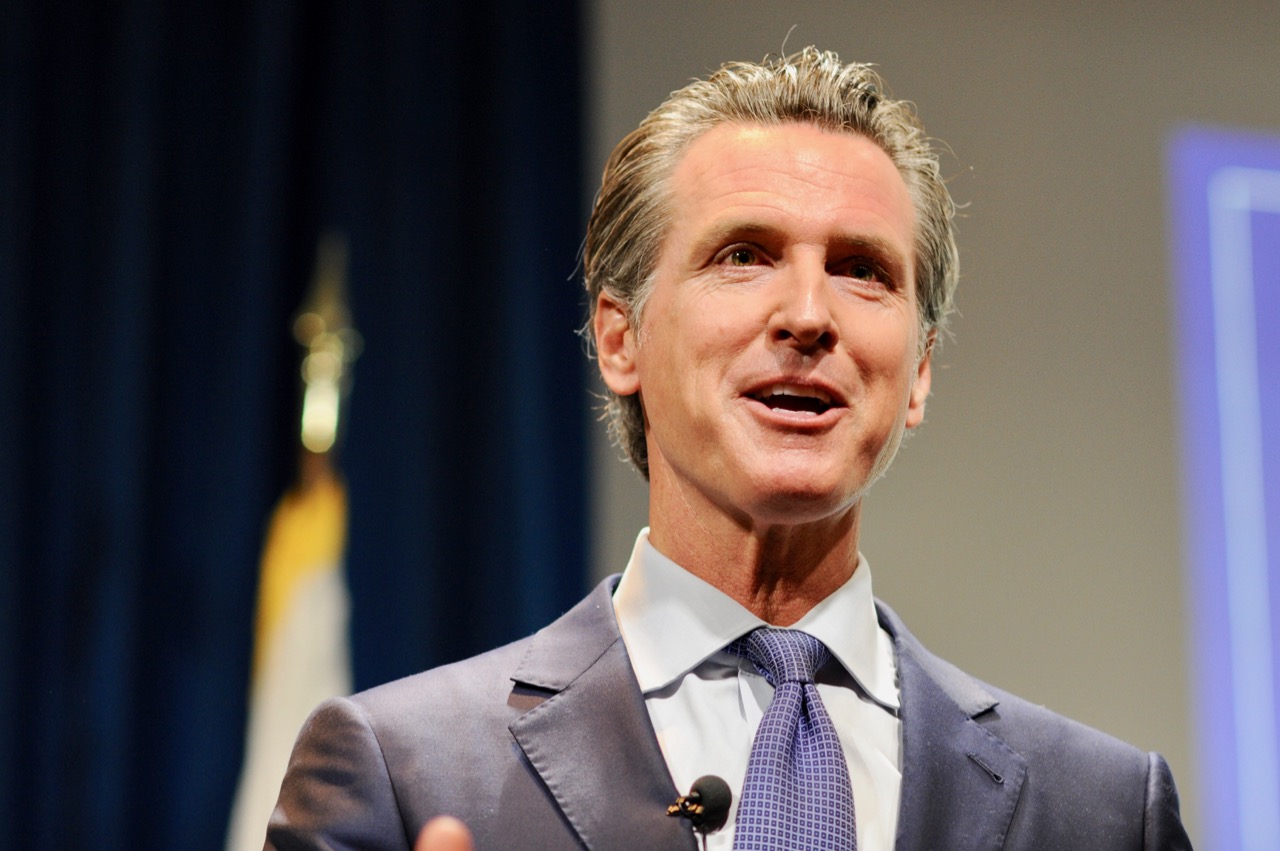
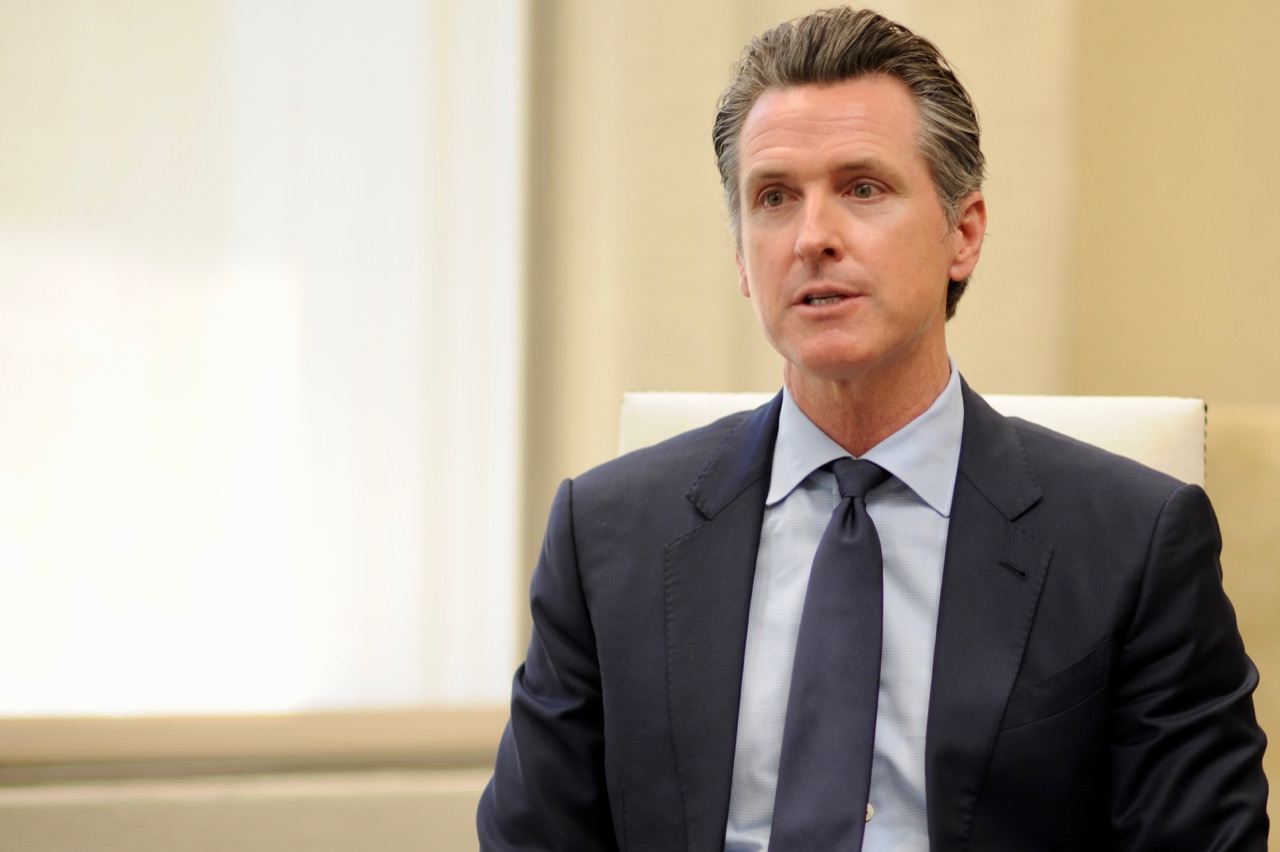
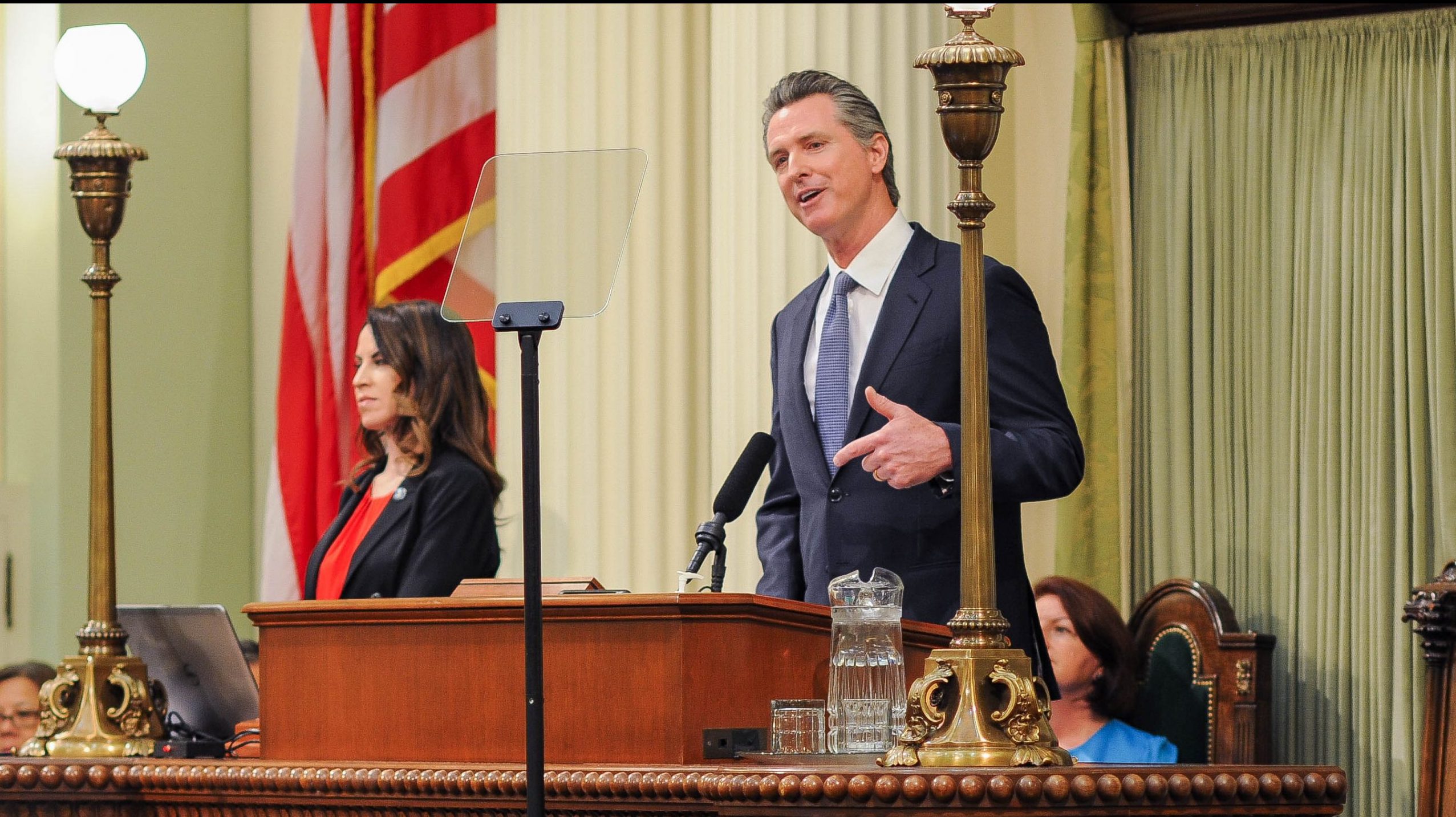
This guy (our governor) makes me sick and he says NOTHING. I hate to say it but it’s getting so there’s no point in listening to him anymore. He probably likes it that way, so no one will track his slush funds. Or hates it, attention-seeking narcissist that he is.
I did appreciate the Republican responses, though.
Newsome is two steps below retarded if he believes that rent control will help ANYTHING.
What about the bullet train? What about reducing the out of control salaries of state workers? Their pay is twice the pay of private sector employees who pay taxes to fund those out of control costs of govt employees. California does not need Prop 13. It needs to manage what it already has!